How a covert attack against Hezbollah unfolded across Lebanon’s streets and malls
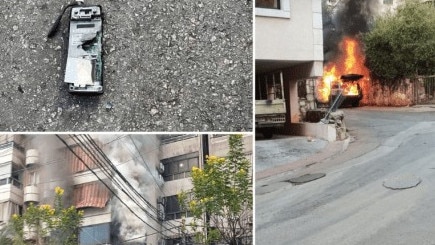
Across town at 3.34pm, another blast tore through a Hezbollah office. A pager used for internal communications received a text message consisting of a series of numbers, then beeped for five seconds before detonating, throwing one man from his chair and destroying his desk, a witness said.
Within minutes, hundreds of pagers issued to Hezbollah officials in Beirut and around the country exploded, killing 12 people and injuring more than 2,800, Lebanese authorities said. Emergency rooms were flooded with blast victims. Hezbollah’s leaders blamed Israel and pledged to retaliate.
Then, on Wednesday, it happened again. This time walkie-talkies and other electronics used by the Shiite militant group began blowing up, sending a second wave of casualties into overcrowded hospitals and further undermining the Shiite militants’ ability to communicate.
By the end of the day, 20 more people were dead and 450 more injured. The attacks also exposed the identities of thousands of Hezbollah operatives, many of whom worked covertly – a coup for Israeli intelligence and a likely surprise for some Hezbollah members’ relatives and neighbours.

The blasts appeared to have been one of Israel’s most ambitious covert operations, aimed at disrupting a foe that has amassed a formidable arsenal and that, since the Oct. 7 Hamas attack on southern Israel, has regularly exchanged fire with Israeli forces across the country’s northern border.
On Wednesday, the country’s defence minister said Israel was starting a new phase of the war in the north. Its top general said, “We have many capabilities that we haven’t yet activated.” Hezbollah, a U.S.-designated terrorist group, struggled to come to grips with the likelihood that Israeli spies had managed to covertly insert explosives into a batch of pagers and also into a set of batteries that were used to power the portable radios – and then to detonate them remotely.
One explosion at around 5pm on Wednesday happened at a funeral in Beirut’s southern suburbs for Hezbollah members killed by Tuesday’s pager blasts. It sent a plume of black smoke skyward near a stage erected for speeches.
Within moments, news spread that another round of explosive attacks was under way, and some mourners panicked and fled.
A Hezbollah member who took an injured colleague for medical attention on Tuesday said he thought the man’s pager explosion was an isolated event, and said he was shocked when he arrived at the hospital.
“The entrance was swamped with people, and a fellow member told me the hospital was at capacity,” he said. “It was only then that I understood this was a large-scale attack,” he said.
Details emerging from investigations into the massive attacks pointed to a highly complex plan carried out by Israel, in which explosives were planted in thousands of devices distributed to Hezbollah members.
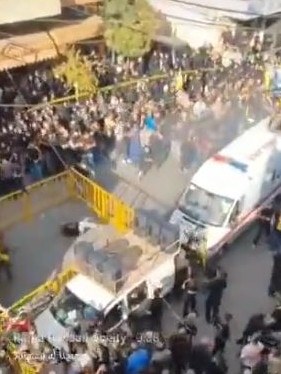
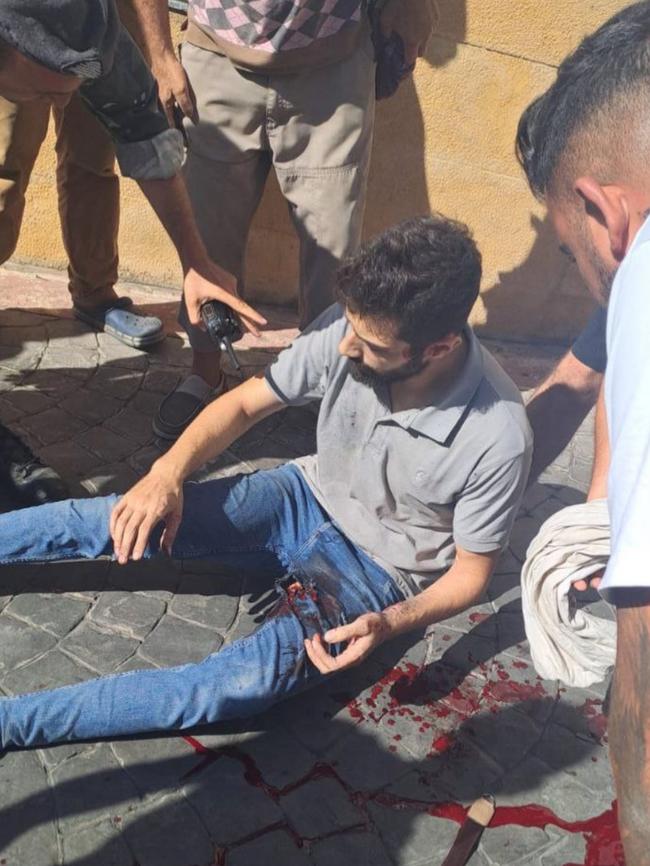
But it also drew condemnation from some international observers and health officials as an imprecise and widespread attack that put civilians at risk for little clear military purpose.
Explosions happened on streets and in markets. At least two children were among the dead. A Lebanese army officer said one radio exploded Wednesday in a car parked at the American University of Beirut Medical Center, or AUBMC, across the street from the emergency-room entrance.
Lebanese Health Minister Dr. Firass Abiad told The Wall Street Journal that many of the pagers blew up in the faces of people who grabbed them after they received a message. And it happened everywhere.
“Some of the injuries were because people were on their bikes, or some people were in their cars,” he said. “Some people were with their families. That’s why their children were affected.” He said it was difficult for him to determine how many of the dead and wounded were Hezbollah members and how many were civilians. Many of those who were injured were working in regular jobs when the pagers exploded, he said.
“Whoever planned this didn’t know where those pagers were going to end up,” he said. “There is a lot of indiscriminate nature in this attack.”
Israel’s government has come under increasing pressure from voters to push Hezbollah back from the Israeli border. Since Hezbollah began firing into Israel after Oct. 7, tens of thousands of Israelis have fled their homes in the north and have lived as displaced persons in other parts of the country.
Israeli leaders have vowed to make it safe for them to return home and have engaged in near-daily exchanges of fire with militants in Lebanon. Israeli strikes have killed hundreds of Hezbollah operatives and prompted tens of thousands of people to flee southern Lebanon.
Israel’s military hasn’t commented directly on the effects of this week’s attacks.
Bassem Badran waited outside AUBMC’s emergency room, where one of his friends was in critical condition and two others were being treated for lesser wounds.
The friend with the worst injuries had been shopping in a supermarket when his pager exploded, blowing off his hand.
The attacks brought Lebanon to a standstill, a significant achievement for a country that has suffered for decades from assassinations, large bombings and Israeli air strikes, including a 15-year civil war, the 1982 Israeli invasion and repeated wars since then between Israel and Hezbollah.
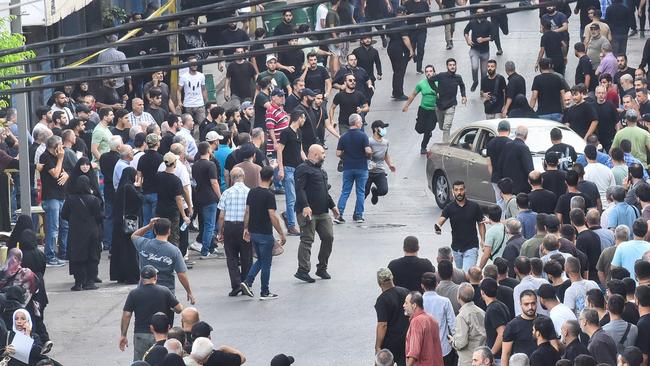
Lebanon’s health minister said that more than 2,000 wounded people had arrived at hospitals within the first half-hour after the pager attack and that by midday Wednesday, hospitals had performed some 500 operations including on people’s faces, eyes and hands.
Ghassan Abu Sitta, a plastic surgeon at AUBMC, said: “Basically you have thousands of young men with almost identical injuries leading to permanent disabilities. These injuries are affecting the hands and one or both eyes.” It took some time for the scale of the attack to dawn on people. Much of the country first learned what was happening online, where videos spilled out showing pagers erupting and then ghastly scenes from hospitals of mangled hands, missing eyes and bloodied torsos.
In the initial moments after the blasts began, some people said they panicked and unplugged their routers and even television sets, fearing that the attack could be more widespread.
Ambulances wailed through Beirut’s crowded streets, and hundreds of people gathered outside emergency rooms at hospitals across the city. At AUBMC, ambulances pulled up every few minutes to unload victims.
Dr Georges Ghanem, crisis unit director at the Lebanese American University Medical Center, said more than 40 patients were with complex injuries, including some missing eyes and limbs.
Because eyes require advanced surgery, supplies and specialists were strained, and operations had to be delayed hours.
“The limited doctors, equipment and space in comparison to all the casualties happening at the same time across the country made the response very difficult,” Ghanem said. “Now we are working on securing prosthetics for those who lost their limbs.”
The Wall Street Journal

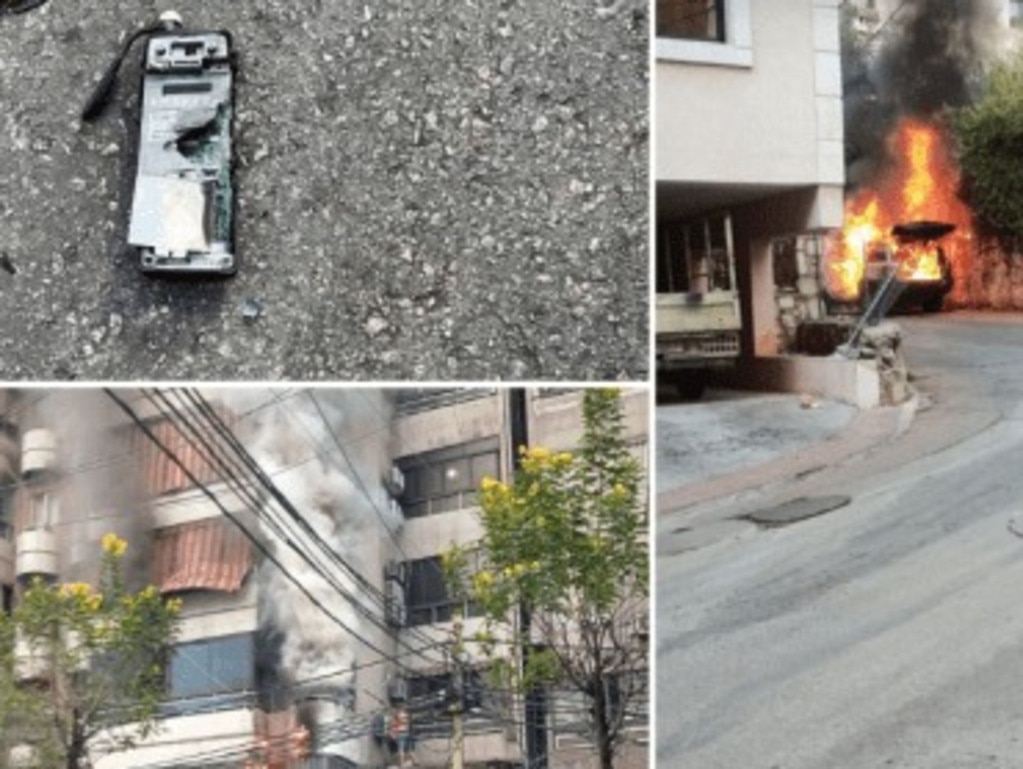
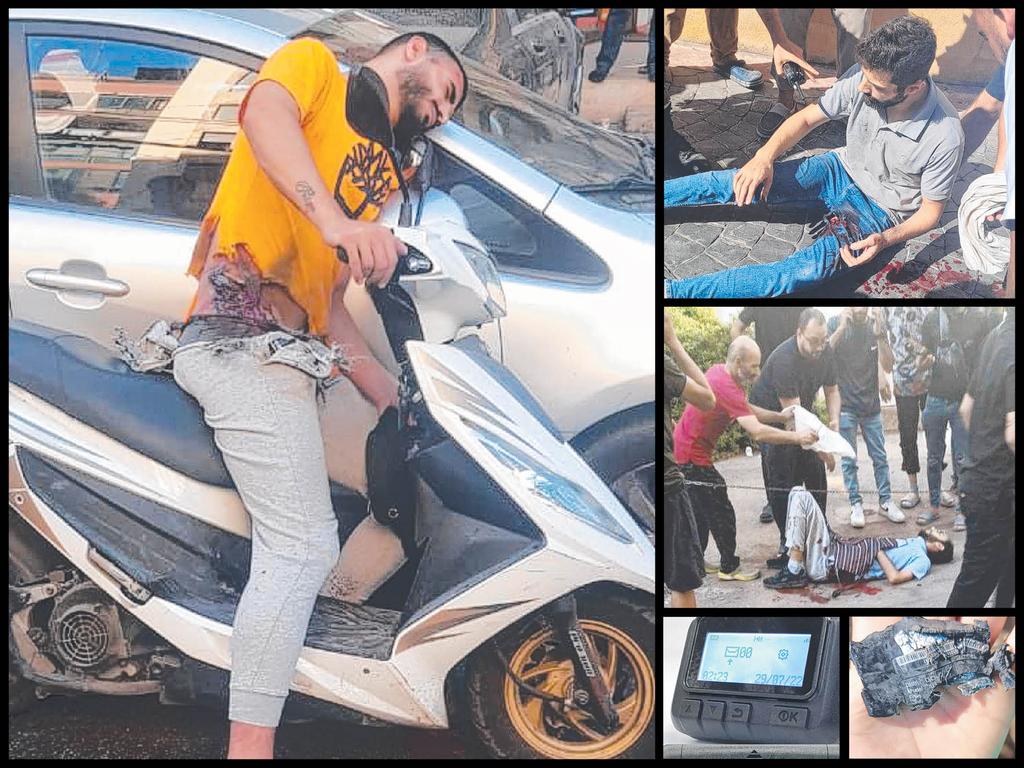


At 3.25pm Tuesday, two members of Iran-backed militant group Hezbollah were eating lunch at a shopping mall in the Lebanese capital when the pager one of the men was carrying exploded, leaving him severely injured and bleeding from the arms and eyes.